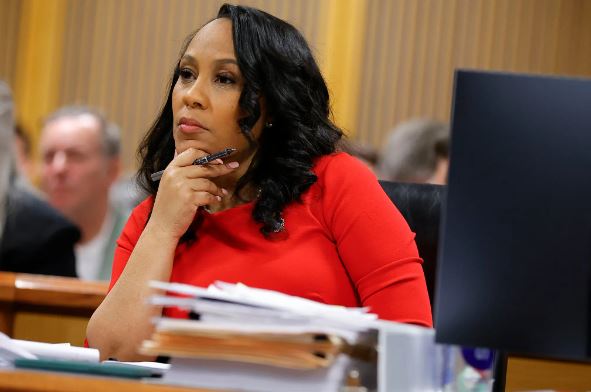Fani T. Willis, the district attorney of Fulton County, Georgia, has taken legal action to prevent an appeal of a recent ruling that upheld her position as the lead prosecutor in the state’s election against Donald J. Trump.
The case, which has garnered significant attention, saw a diversion as Trump and his co-defendants attempted to disqualify Willis, citing her romantic involvement with Nathan J. Wade, a lawyer hired to oversee the prosecution. They argued that this relationship presented an insurmountable conflict of interest.
However, last month, Judge Scott McAfee of Fulton Superior Court ruled that no actual conflict of interest existed. He permitted Willis to continue handling the case, with the condition that Wade step down to address any appearance of impropriety.
Lawyers representing Trump and the other defendants have appealed to the Georgia Court of Appeals, seeking to overturn Judge McAfee’s decision. The court, which tends to lean conservative, has until mid-May to decide whether to consider the matter.
Despite being appointed by Georgia’s Republican governor, Brian Kemp, Judge McAfee has received praise from observers across the political spectrum for his judicious rulings, which have aimed to find common ground in the contentious case.
While Willis expressed dissatisfaction with the extensive hearings that delved into her personal life as part of the conflict-of-interest assessment, she defended Judge McAfee’s decision in her motion filed on Monday.
She argued that there were no errors in the trial court’s determination to deny disqualification, emphasizing the judge’s careful consideration of the facts.
Willis also addressed the judge’s evaluation of a speech she delivered at an Atlanta church in January, where she suggested that her critics were unfairly invoking race in scrutinizing her relationship with Wade.
Defense attorneys contended that the speech could prejudice potential jurors against the defendants. However, Willis pointed out that she did not mention any defendants by name in her remarks and characterized her comment about the race card as too vague to suggest any defendant harbored racial bias warranting disqualification.
In a separate filing on Monday, Trump and most of his co-defendants requested permission from Judge McAfee to appeal a recent ruling in which he rejected their argument to dismiss the case on First grounds.
They asserted that the criminal case was flawed because it was based on constitutionally protected political speech. However, Judge McAfee disagreed, stating that political speech, even on matters of public concern, does not shield individuals from prosecution if it is allegedly linked to criminal activity.

